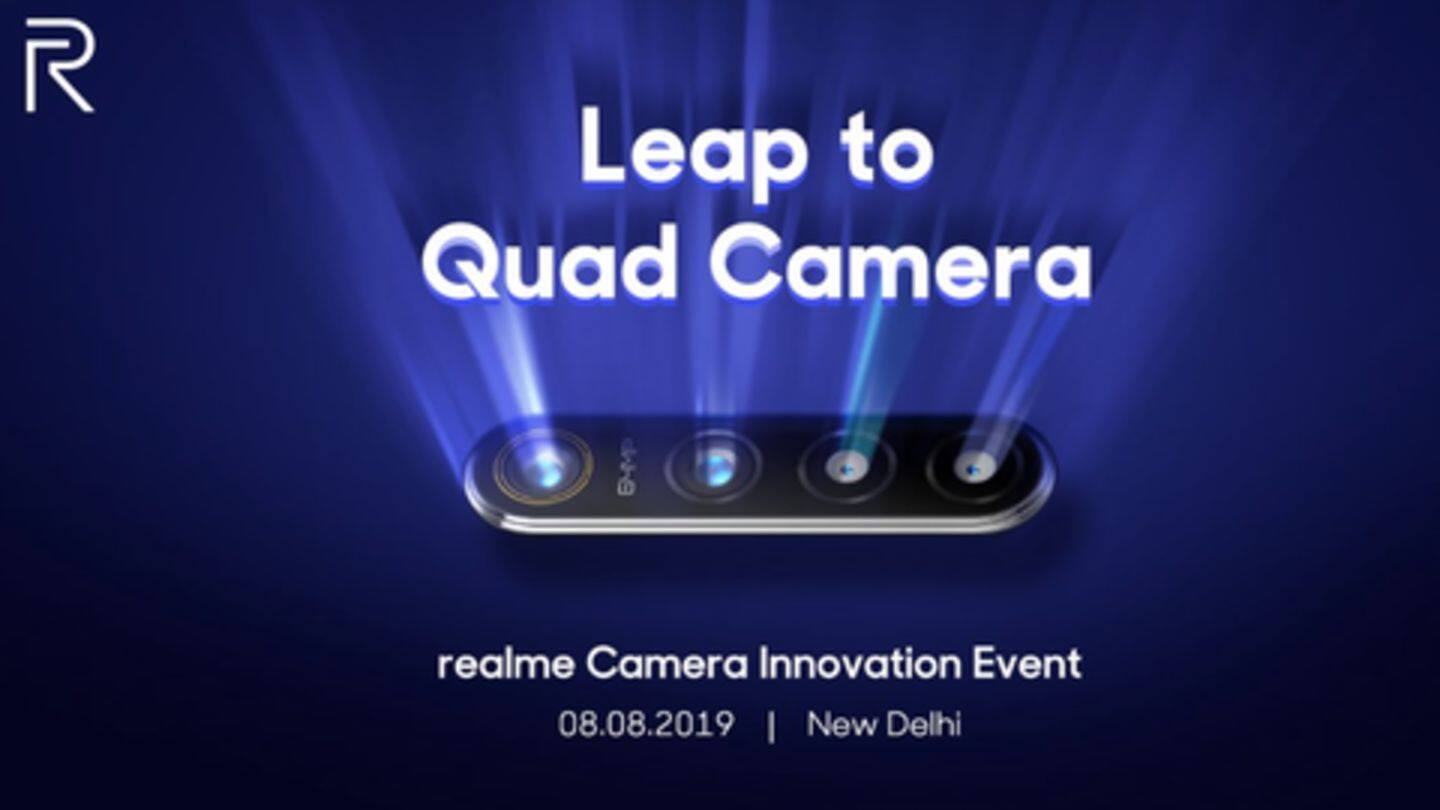
Realme to unveil world's first 64MP smartphone on August 8
What's the story
As manufacturers continue to find ways to put more cameras in a phone as well as more pixels in a sensor, it's fair to say that in today's smartphone wars, camera is the only battlefield left. And to take an early lead, Realme is all set to unveil world's first smartphone featuring 64MP quad camera on August 8. Here's all about it.
One of a kind
World's first 64MP phone camera in a quad-lens setup
While we've already seen quad and penta lenses in smartphone cameras as well as mighty 48MP sensors, Realme is working on something really interesting. As per the teaser shared by the company, Realme's forthcoming phone will debut the world's first 64MP sensor in a quad-lens setup. However, details about the other three sensors and information related to the handset remain scarce as of now.
Key details
Realme will use Samsung's ISOCELL Bright GW1 64MP sensor
To recall, in May this year, Samsung had introduced the world's first 64MP mobile camera and we believe Realme's unnamed quad-camera phone will use the same sensor. Dubbed as ISOCELL Bright GW1, the new sensor measures at 1/1.72 inches - the largest-ever for a mobile camera. Further, it uses 0.8-micrometer (μm) pixels and offers a total resolution of 64 megapixels.
More details
What are the features of Samsung's ISOCELL Bright GW1
Samsung's ISOCELL Bright GW1 sensor uses "pixel-merging Tetracell technology and remosaic algorithm" to produce bright 16MP images with 1.6µm pixels in low-light environments and highly-detailed 64MP shots in brighter settings as the larger sensor lets in more light. The new sensor also supports real-time high dynamic range (HDR) of up to 100dB (standard sensors support 60dB HDR) and 1080p video recording at 480fps.
Twitter Post
Here's the first image taken from the 64MP quad camera
Working on the new premium killer! Introducing world's first smartphone camera with 64MP GW1 largest 1/1.72” sensor and mega 1.6µm pixel with amazing clear shots in low light too. RT if you want to see more “knockout” shots. #DareToLeap pic.twitter.com/D54xNFdaVm
— Madhav X (@MadhavSheth1) June 24, 2019
Possibilities
What to expect in Realme's "camera innovation" event
Going by the image shared by the company, it's been over a month now that Realme has been "working on the new premium killer." However, considering the August 8 event is titled as a "Camera Innovation" event, we expect more insights about the camera and some sample shots, and not really the phone. But frankly, we'd like to be proved wrong this time.
Twitter Post
Meanwhile, Redmi is also working on a 64MP camera phone
By the way, this month, Redmi will also release a 64MP camera phone, Samsung also restarted plans to launch 64MP A series phones in September-October.
— Ice universe (@UniverseIce) August 2, 2019